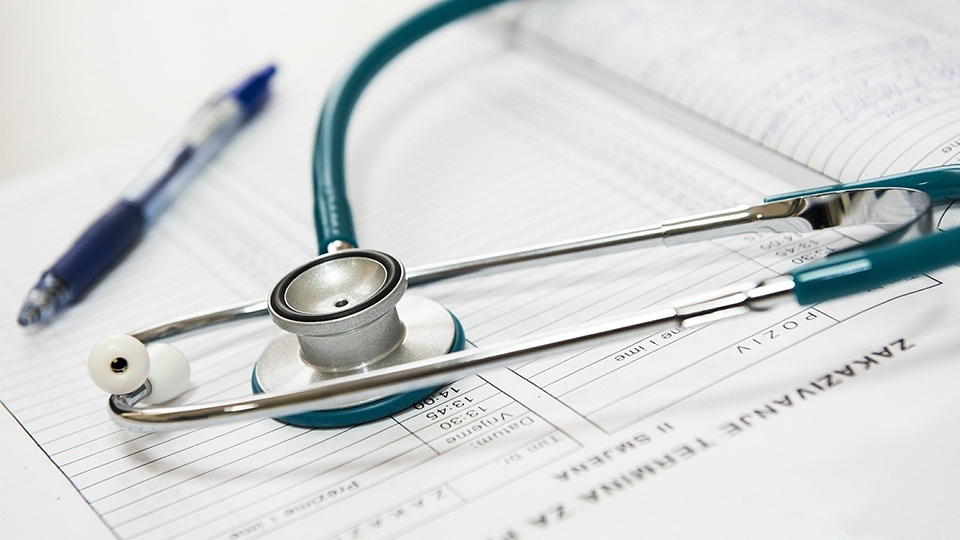NHS urges local people to come forward for life-saving cancer checks
Date published: 25 August 2021

The new ads feature people with a range of symptoms, such as prolonged discomfort in the tummy area or a persistent cough, and aim to persuade people experiencing these to contact their GP
People across the North West who have symptoms that could be signs of cancer are being encouraged to come forward life-saving checks as part of an NHS campaign.
NHS data shows that more than 18,000 people in the North West are diagnosed with abdominal or urological cancers each year, and more than 6,400 people are diagnosed with lung cancer.
But research shows that three in five people (60%) are concerned about burdening the NHS, with half (49%) saying they would delay seeking medical advice compared to before the pandemic.
NHS England chief executive, Amanda Pritchard, launched the campaign to highlight symptoms of some of the most common cancers this week, saying that the NHS is open and ready to treat people.
The ‘Help Us, Help You’ campaign from NHS England, with support from Public Health England, uses TV and digital adverts, posters and social media to raise awareness of symptoms of cancers in the abdominal area, urological cancers, and lung cancer.
The ads feature people with a range of symptoms, such as prolonged discomfort in the tummy area or a persistent cough, and aim to persuade people experiencing these to contact their GP.
Dr Amanda Doyle, North West Regional Director of NHS England and NHS Improvement, stressed that there could be thousands more people in the region who are not coming forward, either because they’re unaware of common cancer symptoms, or because they feel they would burden the NHS.
She said: “We know that thousands of people could be risking their lives by delaying medical attention for cancer symptoms.
"This campaign will remind people of the signs and symptoms to look out for and encourage them to get checked if something isn’t quite right.
“Thanks to the hard work of NHS staff in the North West, we are able to see, diagnose and treat more people than ever before in our cancer services across the region.
"So please don’t delay – if you have a potential cancer symptom you should come forward to get checked, and you should also make sure you attend any other routine appointments.
"We would much rather see you at the earliest stages, when any cancer is easier to treat, but if you’ve waited because of Covid it’s not too late.
“We have strict infection control procedures still in place to keep you and our staff safe from Covid.
"If you need to visit a GP surgery or hospital, you should wear a face covering and follow social distancing.
“It’s incredibly important that people recognise the common symptoms that can signal a cancer diagnosis – and it’s vital that they take action by making an appointment with their GP, that could ultimately save their life.”
Despite abdominal and urological cancers accounting for more than 7,500 cancer deaths per year in the North West new figures from the NHS show that many people are unaware of common warning signs – which could prevent them seeking help.
Three in five (63%) people said they didn’t recognise discomfort in the abdominal area for three weeks or more as an indication of cancer.
Lung cancers account for more than 4,500 deaths per year in the region, but research has found that two in five people don’t recognise that a persistent cough for more than three weeks as a sign of the disease.
There is also concern the symptom could easily be confused with Covid-19.
Symptoms that could be possible signs of abdominal or urological cancers include:
• Discomfort in the tummy area for three weeks or more
• Diarrhoea for three weeks or more
• Blood in your pee – even just once
People in the North West are being reminded to contact their GP if they have any of these symptoms.
People should also speak to their GP if they notice any other unusual changes, such as a lump in the tummy area, post-menopausal bleeding, or unexplained weight loss, as these can also be signs of cancer.
For lung cancer, symptoms can include:
• A cough for three weeks or more that isn’t Covid
• Chest infections that keep coming back
• Coughing up blood
Around a quarter of a million people were checked for cancer across England in June, the second highest number on record, and treatment numbers have been back at usual levels since March.
More than 27,000 people started treatment for cancer in June, a 42% increase on the same time last year.
Do you have a story for us? Want to tell us about something going on in and around Oldham? Let us know by emailing news@oldham-chronicle.co.uk , calling our Oldham-based newsroom on 0161 633 2121 , tweeting us @oldhamchronicle or messaging us through our Facebook page. All contact will be treated in confidence.




